CEIPA × TOYOTA GROUP 'MUSIC WAY PROJECT' Professional Seminar Public Series 1st Edition (Korea Edition) – Official Recap
On July 22nd, CEIPA (Cultural and Entertainment Industry Promotion Association) and the TOYOTA GROUP kicked off the first edition of their “MUSIC WAY PROJECT” Professional Seminar Public Series (Korea Edition) at the Grand Hall of Toyota Motor Corporation’s Tokyo Headquarters.
Organized as part of the MUSIC WAY PROJECT, a collaborative initiative between CEIPA and TOYOTA GROUP, the seminar aims to support the global expansion and long-term growth of Japanese music under the banner “Japanese music drives the world.”
This first session, held in front of an audience of around 200 industry professionals and streamed live online, marked the start of a five-part series scheduled to run from July to November. The goal: to provide insights and foster connections for those aiming to take Japanese music beyond borders.
To better understand the realities of key overseas markets such as South Korea, Indonesia and Thailand, the seminar featured talk sessions with guest speakers who are active in those regions. For this first edition, the spotlight was on Korea, with three professionals from the Korean music industry offering on-the-ground insights into expanding into the market. To help foster a more global perspective among attendees, the program also included a video lecture by a professor from Berklee College of Music.
The seminar concluded with a networking session, where participants actively exchanged ideas and made new connections.
The seminar kicked off with opening remarks from Shuichi Kurita, Executive Director of CEIPA, setting the tone for the day. He was followed by Takeya Kito, Director and Head of Music Partnerships at YouTube Japan / Google, who delivered a keynote titled “Skills for Expanding Overseas.”
In his talk, Kito underscored that language ability is just a means to an end and not the end itself. He highlighted the importance of being aware of cultural differences in communication between Japan and the West, and offered actionable advice on how to train oneself to communicate ideas clearly and logically in a global context.
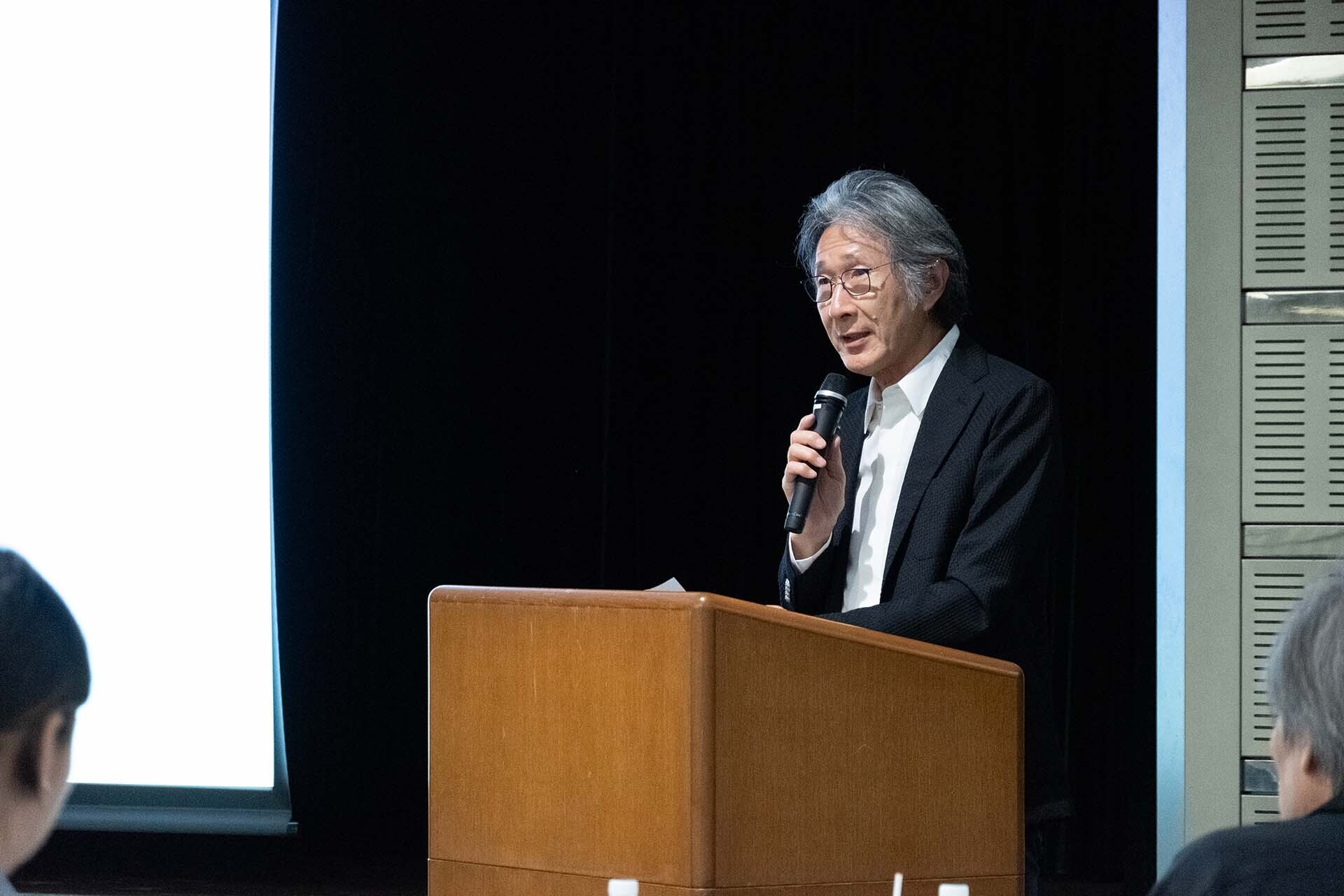
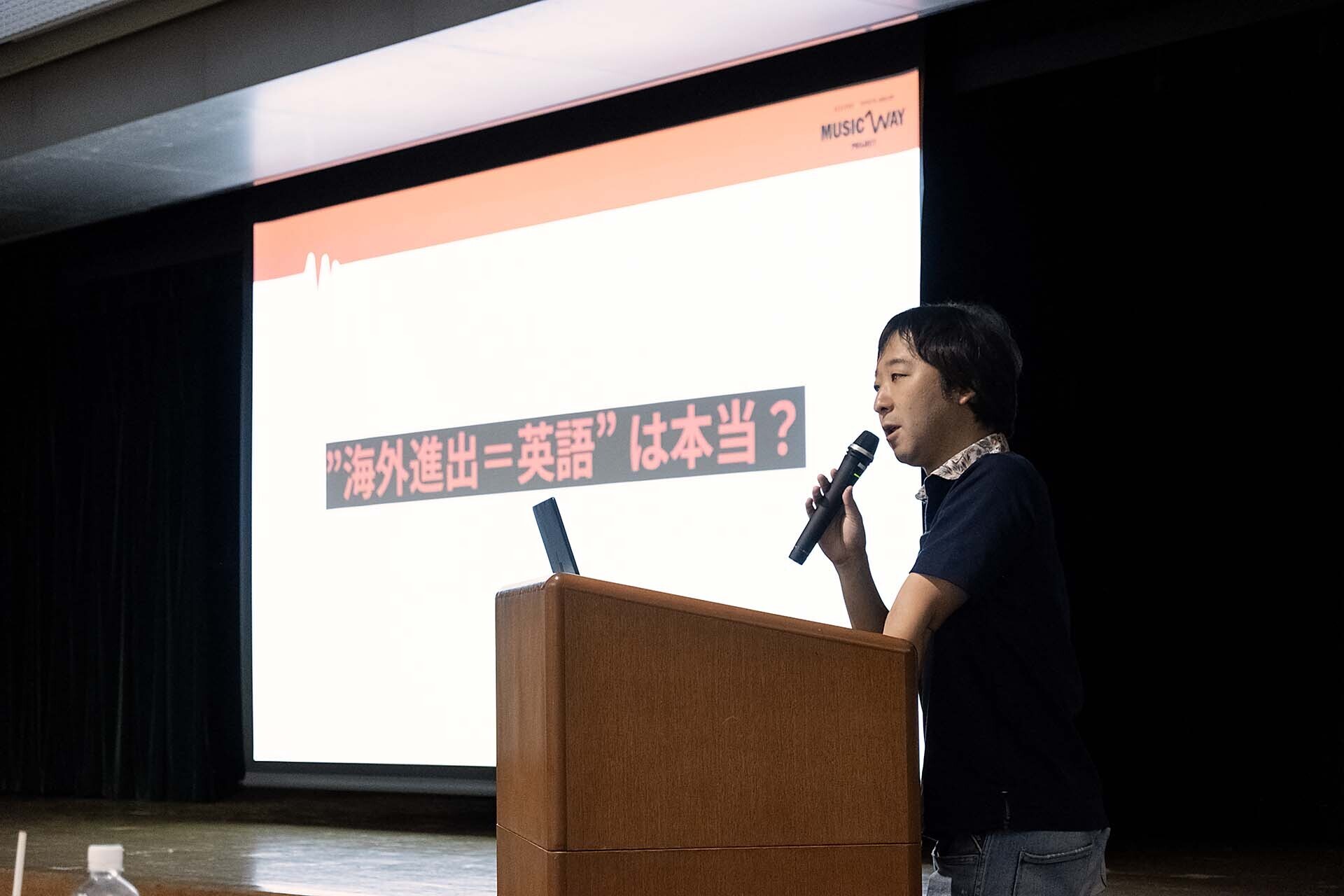
The following session showcased a pre-recorded video lecture from Alexandre Perrin, a professor at Berklee College of Music’s Valencia campus. In his presentation, Perrin highlighted the critical role of data analysis for thriving in today’s digital music industry. He underscored the indispensable use of metadata for rights management and revenue generation, explaining key concepts such as the “ISRC” codes for identifying recordings and “IPI” numbers for rights holders. Perrin also demonstrated how tools like Chartmetric can be utilized effectively. He emphasized that analysis techniques and marketing strategies should be tailored to each country or region, stressing the importance of maintaining an international outlook.
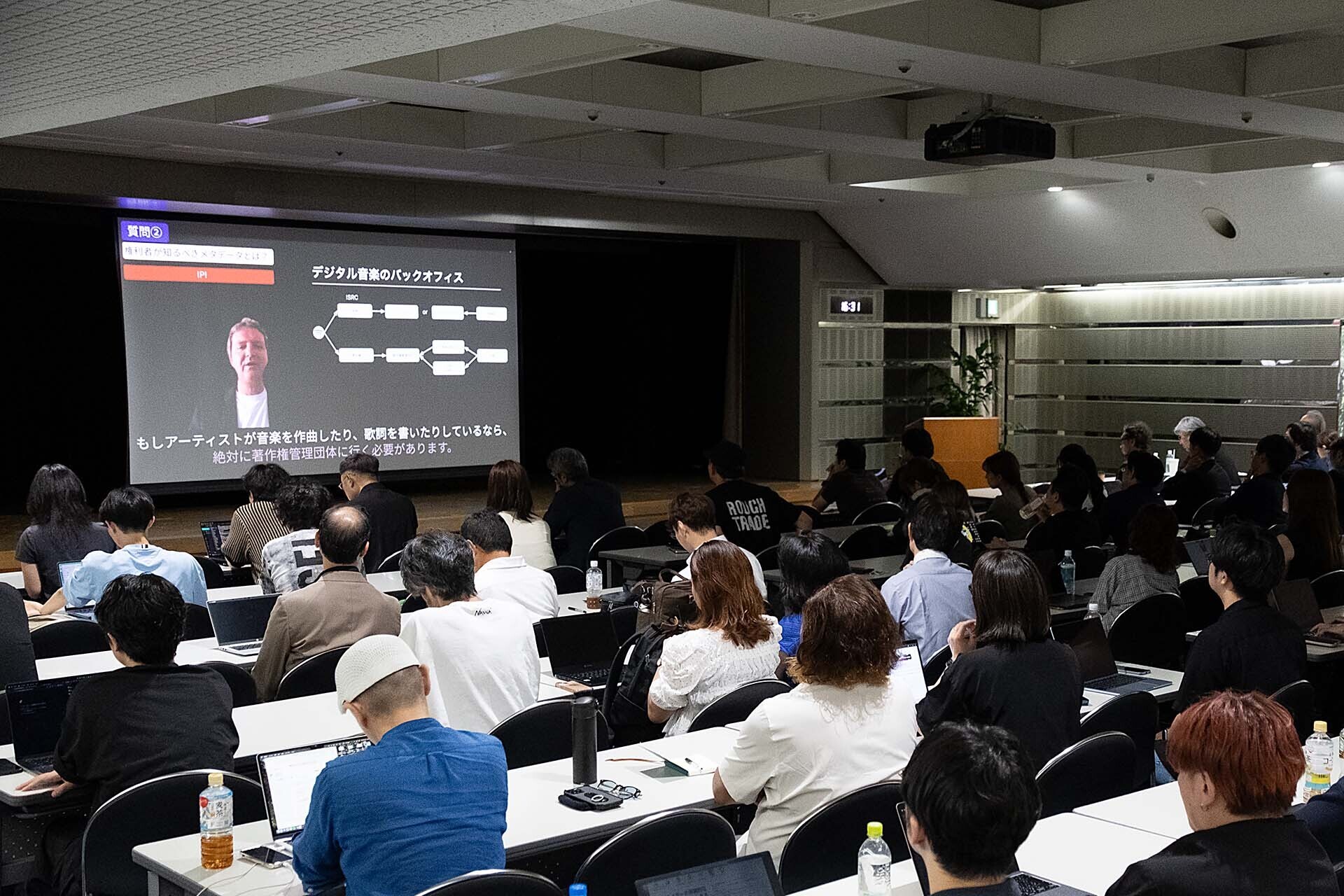
The seminar then transitioned into the main segment, titled “Market Deep Dive.” Leading off was Jayden Son, co-founder and CEO of HYPEER Inc., who provided insights into the current Korean music market and how to approach it strategically. Son described the Korean scene as facing “J-pop inflation” and pointed out that a uniform global strategy won’t cut it. Success lies in embracing a “multi-localization” strategy that deeply understands local cultural nuances. He stressed that the essence is less about what music is presented and more about what emotions it conveys. Son also introduced a framework that classifies listeners into five levels and shared concrete marketing strategies built around this model.
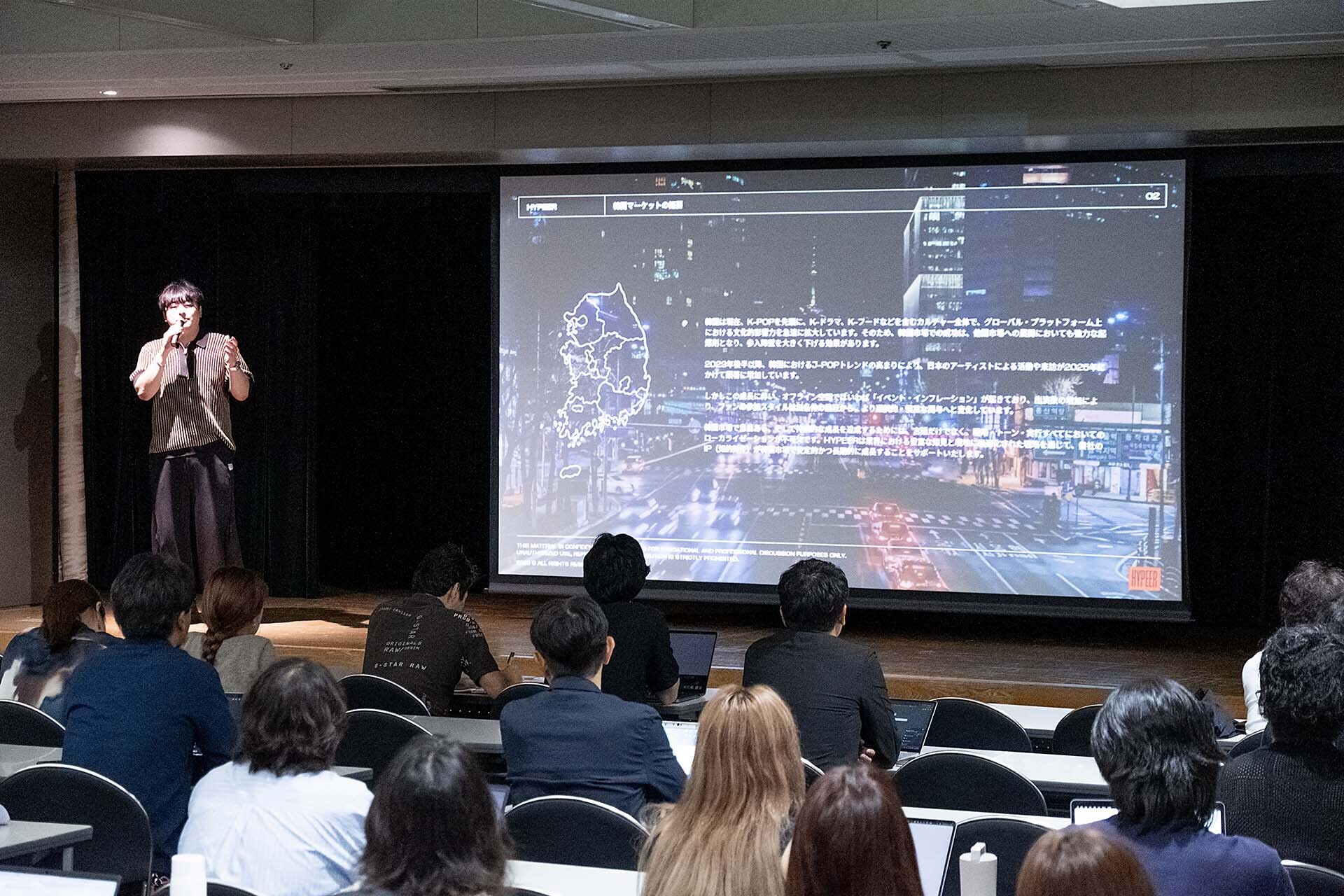
SJ, founder and CEO of AXIS, then took the stage to share creative strategies for succeeding in the Korean market, focusing on the example of cosmosy, a female idol group he produces composed entirely of Japanese members. SJ clearly explained the reasons behind forming cosmosy exclusively with Japanese talent, the concept combining “high school girls × idols × magical girls,” and the strategic choice to use multilingual lyrics blending Japanese, Korean, and English.
He also discussed key differences between the Japanese and Korean idol industries, highlighting the significant disparities in investment and business models. Mixing candid data with humor, SJ delivered an insightful yet engaging overview of these industry realities.
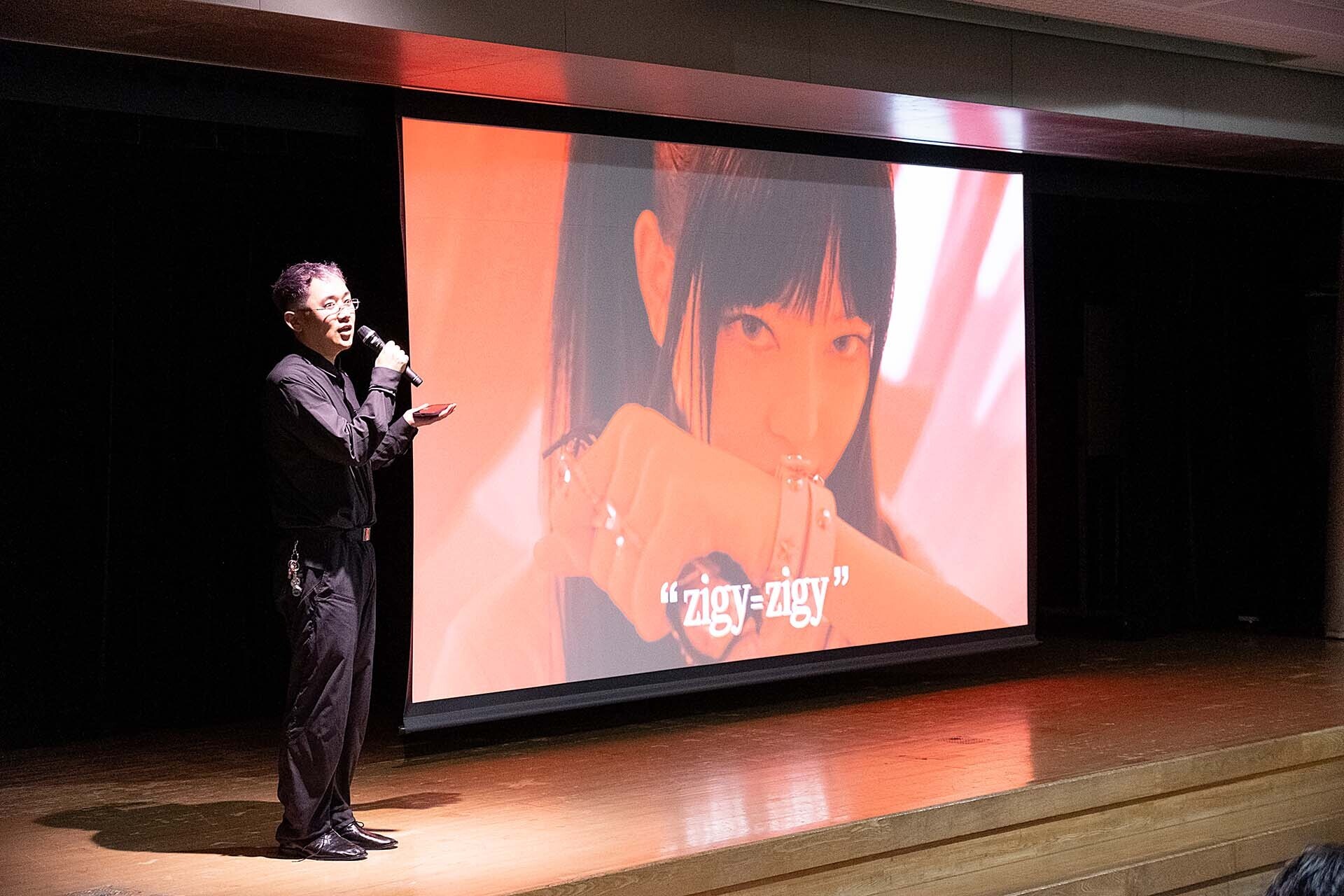
The final speaker was Cecilia Soojeong Yi, co-founder and artistic director of the DMZ Peace Train Music Festival. Speaking from a promoter’s perspective, she provided insights into Korea’s live music scene, noting the increasingly blurred lines between major and independent sectors. Yi emphasized the importance of analyzing fan bases through platforms like Korea’s largest music streaming service, Melon, and fan community site Namuwiki. Citing examples such as the Japanese indie band TENDOUJI, she described festival appearances as low-risk, high-reward opportunities.
Yi also stressed the importance of partnering with trusted collaborators when entering the Korean market and introduced support systems available from both public agencies and private companies. The seminar concluded with a lively Q&A session, during which all three speakers answered questions from the audience.
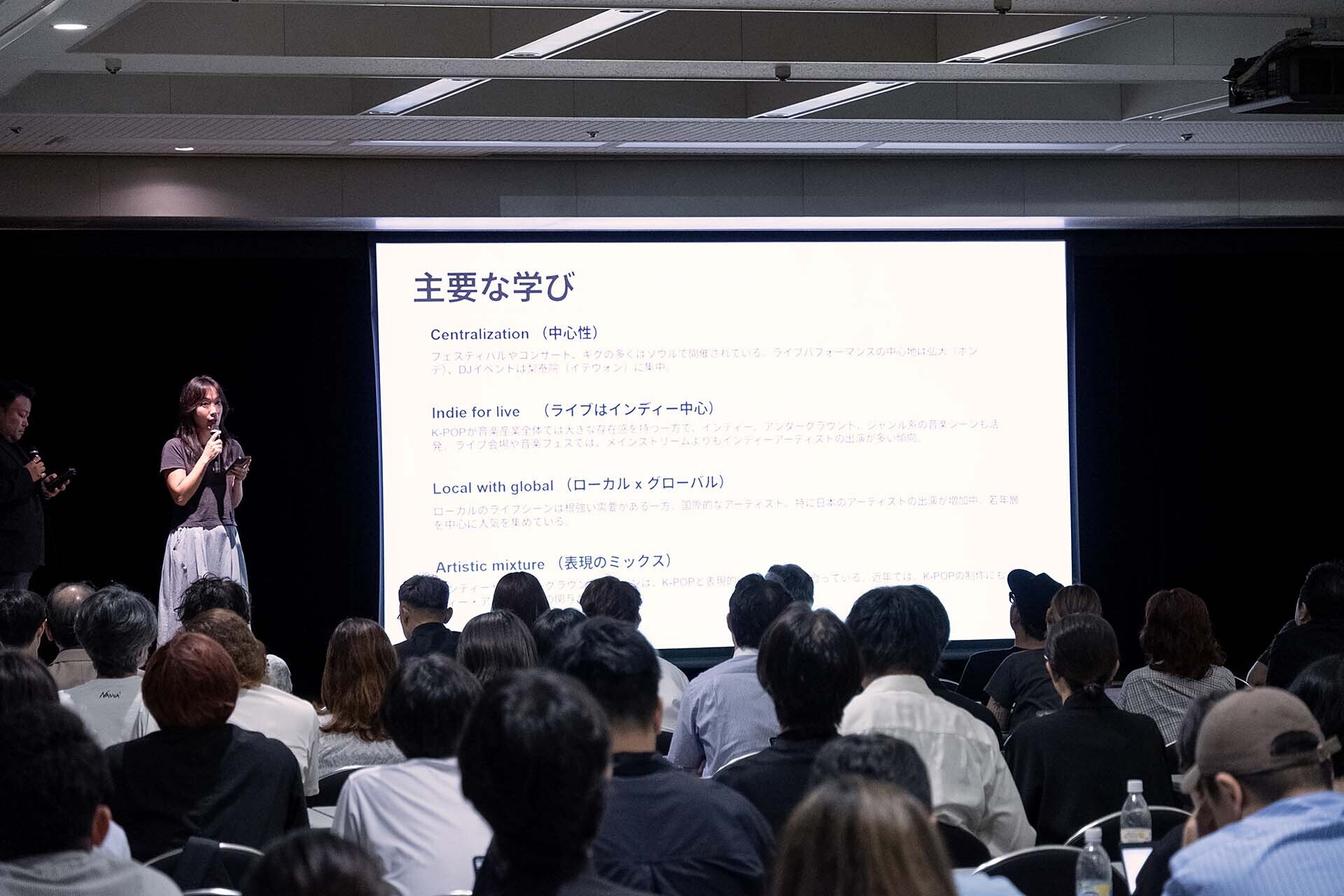
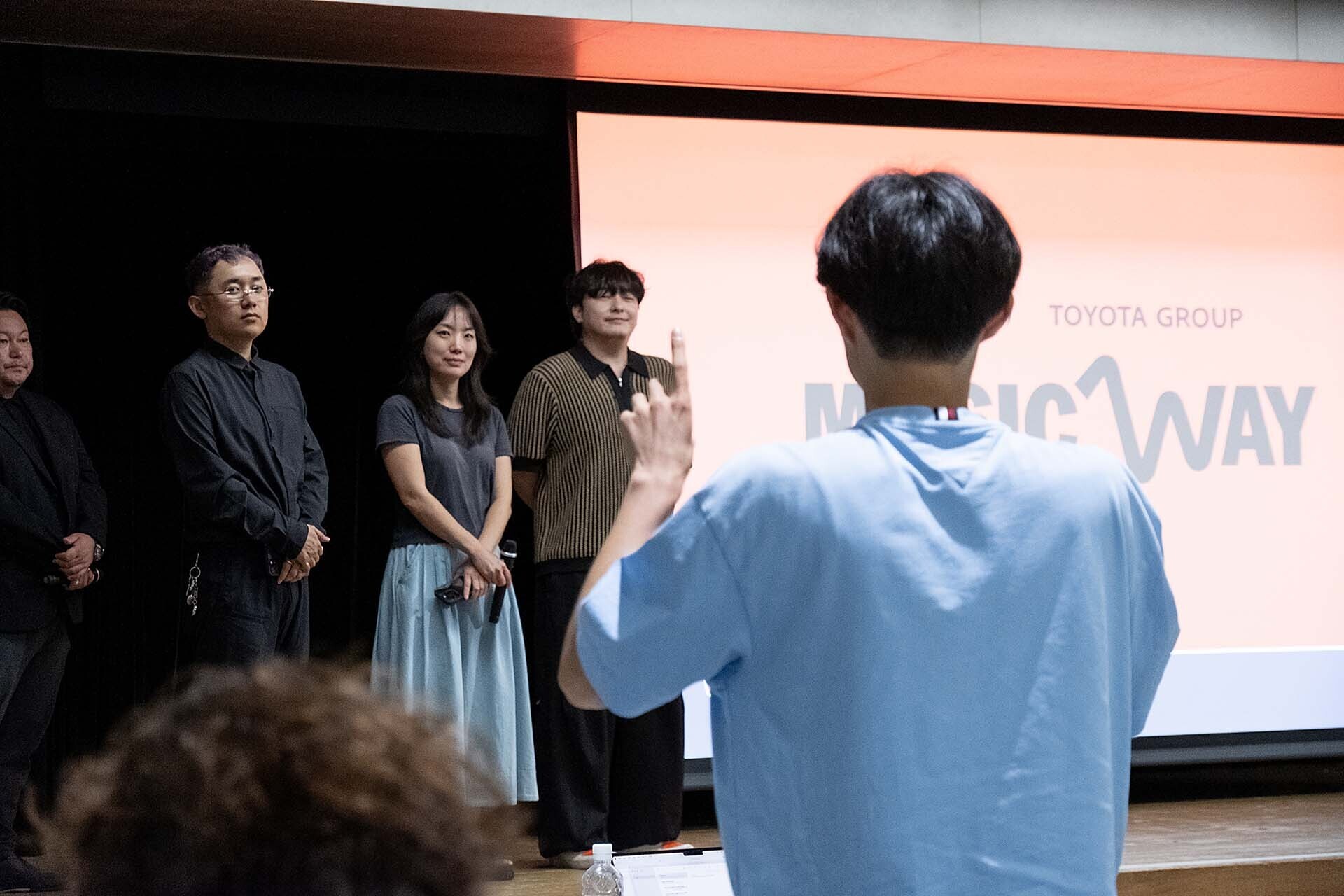
As mentioned earlier, this seminar series consists of five sessions, with the next scheduled for Aug. 14 featuring three experts from Thailand.